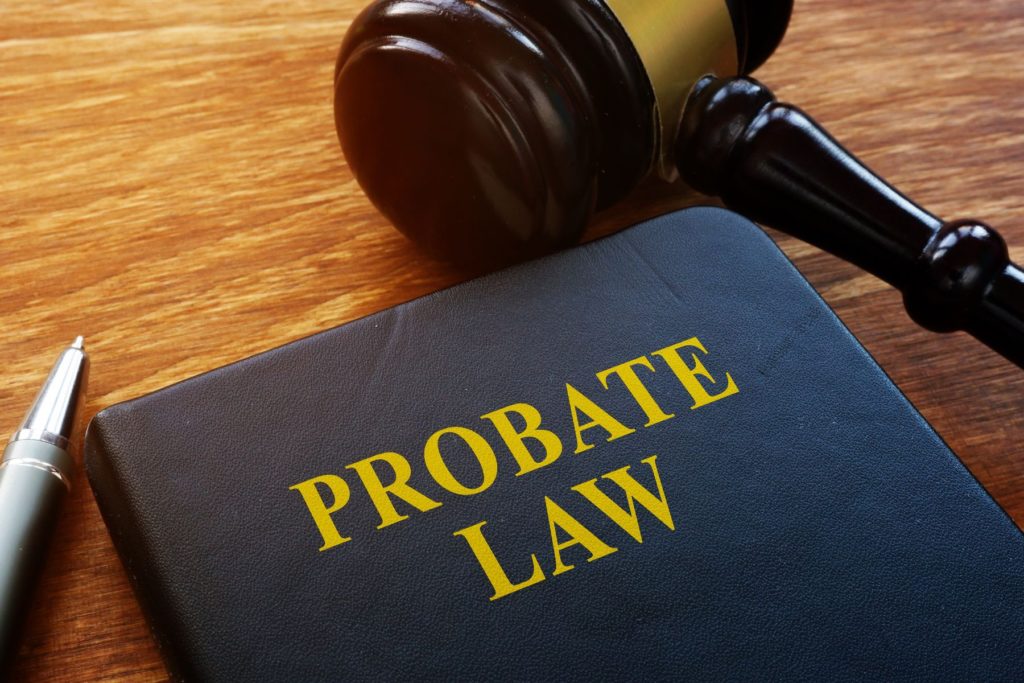One caveat before we get started: today’s post is all about probate. And caveats. Probate caveats. If you’ve never heard of probate caveats, don’t worry. In today’s post we’ll explain what they are, how one might come about in a probate situation, and what effect they generally have on a probate estate.
So here goes!
The What.
When a person dies, the legal process for distributing his or her property to his/her beneficiaries is called “probate.” When a person has a Will (“Last Will and Testament”) in place before s/he dies, before the decedent’s probate assets (those items that pass through the Will) can be distributed according to its terms, the Will has to be admitted to probate. Then it proceeds through the court-supervised probate process.
Unless, of course, someone raises questions about the validity of the Will.
In that case, there will be motions, hearings, delays, and litigation costs. When someone (usually a beneficiary) has a problem regarding a decedent’s Will, that person can “contest” the Will.
What kind of problems, you ask?
Any number of problems. A person could believe that the personal representative appointed under the decedent’s Will might be untrustworthy and might want to stop that appointment. Or, a beneficiary might believe that someone who stands to inherit unduly influenced the decedent to make his Will in his or her (i.e., the bad guy’s) favor. Or, someone may have found another Will or spotted a problem with the current Will. Whatever the reason, the point is that if someone has a problem with the decedent’s Will —whether it is a real problem or only a perceived problem — they can contest the Will.
And sometimes the first step in contesting a Will is to file a “caveat.” A caveat is written notice of a will contest or that someone has an interest in the probate proceedings.
The person who files the caveat is known as the caveator. The caveat (i.e., the written notice) prevents the probate court from admitting a Will to probate or appointing a personal representative for the estate unless the court first gives the caveator formal notice of the proceedings.
So what does this really mean?
Basically, when a caveat is filed, it means that someone (the caveator) has an interest in the estate that he/she wants to protect in some way. Often this is by contesting the Will, but there can be other actions taken as well. The caveat requires the probate court to give that person notice of all the proceedings so that he/she can step in and file a timely Will contest or objection.
The When.
A caveat filed by an interested person can be filed before or after the decedent’s death.
The Why.
Why allow caveats in probate proceedings?
Well, one main reason for allowing caveats is because the law in Florida lets the nominated personal representative admit decedent’s Will to probate without giving anyone prior notice.
That means that, absent a caveat, anyone with a reason for contesting the Will or for preventing the nominated personal representative from being appointed, would either miss the opportunity to file the contest, or would enter into the proceedings late —costing everyone more time and money arguing about the issues and trying to undo steps already taken by the probate court.
Having a prior notice provision promotes judicial economy by getting the conflicts over the Will and/or personal representative over with before the probate administration proceeds. Because it occurs before the representative is appointed, it is also helpful in preventing the personal representative from spending the estate’s money to defend against the Will contest and/or his/her appointment.
Another caveat here: there is a lot more to know about Florida caveats and their uses than can be adequately handled in a short blog post. So if you have questions or concerns or want to know more, reach out to an experienced estate and probate lawyer.
Talk to Our Probate Lawyers
Our team here at SJF Law Group works hard to ensure that your wishes will be followed, and your loved ones taken care of when you are gone. Our estate planning lawyers expertly guide individuals and families through the complex probate process and capably handle all aspects of the creation, administration, and settlement of estates and trusts. When you work with our estate planning attorneys at SJF Law Group, you get more than just an estate plan: you get peace of mind.
As trusted probate and estate planning lawyers, we serve clients in the vibrant communities of Plantation, Fort Lauderdale, Boca Raton, West Palm Beach, and Miami, FL. We are also pleased to offer the options of both in-person and virtual appointments throughout Florida to make our services accessible no matter where you are located.
If you want to discuss your specific situation with one of our estate planning lawyers, contact SJF Law Group at 954-580-3690. You can also fill out our contact form. We take pride in responding to inquiries in a timely manner.

